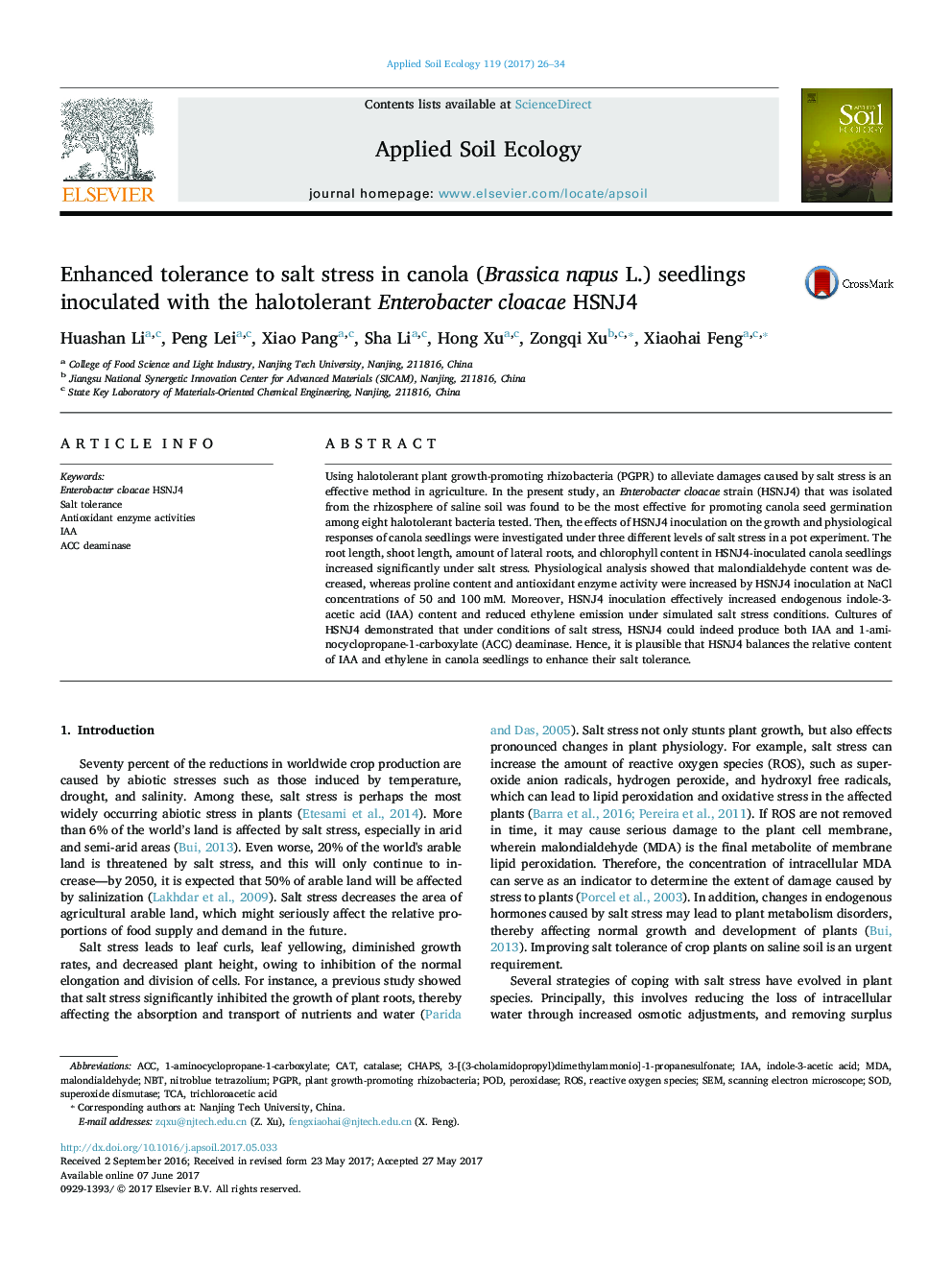| Article ID | Journal | Published Year | Pages | File Type |
|---|---|---|---|---|
| 5742611 | Applied Soil Ecology | 2017 | 9 Pages |
â¢Rhizobacteria Enterobacter cloacae HSNJ4 was isolated from saline soil.â¢HSNJ4 significantly enhanced the salt tolerance of canola seedlings.â¢Under salt stress, HSNJ4 produced both IAA and ACC deaminase.â¢Salt tolerance in canola seed via HSNJ4 is likely driven by hormonal balancing.
Using halotolerant plant growth-promoting rhizobacteria (PGPR) to alleviate damages caused by salt stress is an effective method in agriculture. In the present study, an Enterobacter cloacae strain (HSNJ4) that was isolated from the rhizosphere of saline soil was found to be the most effective for promoting canola seed germination among eight halotolerant bacteria tested. Then, the effects of HSNJ4 inoculation on the growth and physiological responses of canola seedlings were investigated under three different levels of salt stress in a pot experiment. The root length, shoot length, amount of lateral roots, and chlorophyll content in HSNJ4-inoculated canola seedlings increased significantly under salt stress. Physiological analysis showed that malondialdehyde content was decreased, whereas proline content and antioxidant enzyme activity were increased by HSNJ4 inoculation at NaCl concentrations of 50 and 100Â mM. Moreover, HSNJ4 inoculation effectively increased endogenous indole-3-acetic acid (IAA) content and reduced ethylene emission under simulated salt stress conditions. Cultures of HSNJ4 demonstrated that under conditions of salt stress, HSNJ4 could indeed produce both IAA and 1-aminocyclopropane-1-carboxylate (ACC) deaminase. Hence, it is plausible that HSNJ4 balances the relative content of IAA and ethylene in canola seedlings to enhance their salt tolerance.
